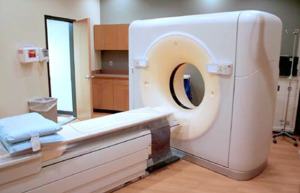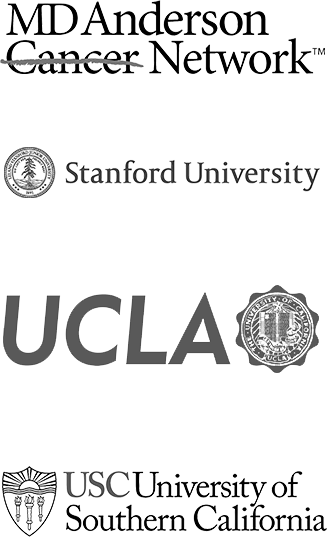Pulmonary Carcinoma Treatment
Depending on the individual patient and the size, stage, and location of the pulmonary carcinoma tumor, surgery is often used to remove the cancerous cells from the lungs, most commonly in cases of stage one and stage two small cell tumors. While surgery may not always be a viable option for all patients, the different types of available lung cancer therapies are often used in combination to help shrink tumors before and after surgery, or as treatment for patients that are not candidates for surgery.

Pulmonary Carcinoma Treatment
The standard treatment methods for pulmonary tumors are surgery, radiation, and chemotherapy, often in some combination of the three, depending on how the tumors respond to a specific form of treatment at any given time.
New research, clinical trials, and developments across the fields of medicine and genetics have led to exciting and revolutionary breakthroughs in additional treatment options for lung cancer. From drugs designed to mimic the human body’s own immune system, to therapies designed to differentiate between healthy and malignant cells, cancer treatment is making great strides across the board.
Advanced Treatment for Pulmonary Carcinoma in Los Angeles
Immunotherapy
Immunotherapy treatments for lung cancer work like the body’s immune system to specifically target the tumors with an effective immune response. This also has the added benefit of minimizing exposure and damage to neighboring healthy tissue.
Adoptive T-cell transfer – T-cells are a type of white blood cells. This procedure removes t-cells from the patient and adds genetically modified markers designed to target and fight cancer cells when the new t-cells are reintroduced into the body.
Monoclonal antibodies – Tumors contain a substance called antigens, which signal a healthy immune system that they should be targeted as a foreign invader. This type of therapy synthesizes antibodies to attack the antigens specific to particular tumors. Antibodies are the immune system’s weapon against illnesses and foreign invaders in the body.
Therapeutic vaccines – Like monoclonal antibodies, therapeutic vaccines are designed to target antigens specific to tumors and cancer cells.
Checkpoint inhibitors – The immune system is regulated by a system of checks and balances to keep the immune response working correctly. This therapy targets the molecules that regulate that process.
Targeted treatments for Lung Cancer
Targeted treatments are providing real breakthroughs for pulmonary carcinoma treatment. This type of therapy specifically targets lung tumors while leaving healthy tissue intact and unharmed. Targeted treatments may be used in combination with chemotherapy in patients with more aggressive or advanced forms of lung cancer. Some of the most commonly used targeted treatments for lung cancer include:
- Crizotinib (Xalkori)
- Afatinib (Gilotrif)
- Bevacizumab (Avastin)
- Erlotinib (Tarceva)
- Gefitinib (Iressa)
- Ceritinib (Zykadia)
The board-certified oncologists and lung cancer specialists at the Cancer Center of Southern California in Los Angeles are at the front lines of the war on lung cancer, and have access to some of the most cutting-edge and state of the art minimally invasive surgical equipment and lung cancer treatment therapies.
Next, read Lung Cancer Surgery


